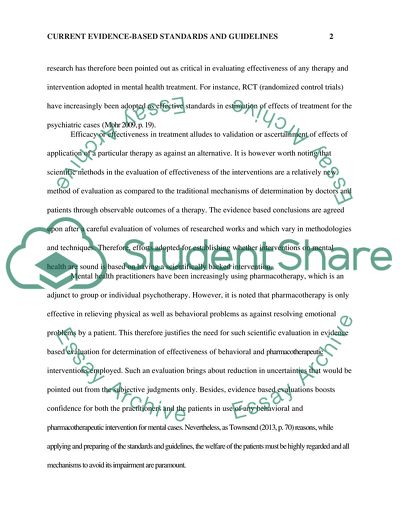Discuss current evidence-based standards and guidelines to determine Assignment. https://studentshare.org/medical-science/1833192-the-effectiveness-of-pharmacotherapeutics-for-patients-with-psychosocial-disorders
Discuss Current Evidence-Based Standards and Guidelines to Determine Assignment. https://studentshare.org/medical-science/1833192-the-effectiveness-of-pharmacotherapeutics-for-patients-with-psychosocial-disorders.


